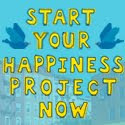My
6 word Saturday post told you someone had a recital that day. Some of you, I think, believed it was my recital. Alas, no. Oldest had her first Suzuki Piano recital of the year.
What do you know about the
Suzuki method? I didn't know much either when we started almost 2 years ago. I just liked the idea that the lessons were one-on-one, rather than group. When we started, we had all of these "rules:"
- I attended alone for 2 months.
- I was to attend and "participate" in the lesson.
- Younger siblings stayed home unless they could play quietly or draw during the lesson.
- I had to read a book about the method before starting.
- We had to observe another student before starting to see the method in action.
Stuff like that. And let me tell ya - I almost didn't sign her up after we observed the other student (probably wouldn't have, but we'd already paid into it). The student was like . . . brilliant. A virtuoso. A-M-A-Z-I-N-G.
She was also the same age as Oldest. I went to my next (and last) personal lesson before Oldest started and said, "I am shocked. She's so good." When what I wanted to say was, "Why did you have me watch a virtuoso? Why not have me watch one of your "regular kids," you know, like mine's going to be. I just had her in a keyboarding group class and she did awful."
The teacher just said, "She's been taking a little over a year now - that's where Oldest will be next year." I didn't believe her.
Then.
Oldest lost TV all Memorial Day weekend, about 2 months after she started. The only thing she could "think of" to do to entertain herself was play piano. It was a major turn for both of us. I started to see the method in action.
The
Suzuki Method is not unlike the
Montessori Method, assuming that every child, through hard work and concentration, has great potential. Shinichi Suzuki strongly believed adults weren't born with raw "talent," that "talent" appears only through
hard work and repetition. And a nurturing environment.
He's right, of course, but you should hear people's reactions when they hear Oldest play something like
Ecossaise, which was her Recital piece. They are flabbergasted, frankly. Like, "What talent! What do you do! She's amazing!"
And I, knowing it's just the method at work, smile and tell them the Suzuki method of piano is the best choice we made with Oldest's music lessons. That they should give it a try.
But guess what? When I hear the Older kids play things like
Book 4, which she will get to when she's around 14, I am the one who is flabbergasted. The boy (15) who plays ahead of us right now is SO GOOD! I recently said this to the teacher - "My God! He's so good!" Because even I forget about the method when I listen to the older kids. Her reply? "Oh, well, that's where Oldest will be in about 6 years."
So matter of fact about it. But then again, she's been teaching for 30ish years, I think, so she's seen it many, many times.
What's my point today?
One - To tell you the Recital went great. When you listen to kids ranging from 4 to 16 years old, you get a wonderful cross section of "where you've been" and "what you will become." And we have become a little community of families who all share the same love of this method and the results we see in all of our children.
Two - The activities you enroll your child in really do make a big difference. Had we stuck with the group keyboarding, we would have walked away thinking she had no "talent" and that she wasn't "meant" to be a piano player. With some research and a bit of a leap of faith, though, she's in a program that fits her needs and personality "practically perfectly in every way."
Three - Sometimes I love my children so much I could eat them - Saturday was one of those days. But it doesn't matter how many times she attends these recitals (Saturday was her 4th), Husband and I are always so nervous we can hardly speak until she's done. Oldest? Not at all - which is one of the things I love most about children - they don't yet GET what a big deal it is to play alone in a room full of people.
Four - Youngest will officially start when she turns 3. THREE! Can you believe it? She already gets up on the bench and "does her practice," which
already echoes the tempo of what she hears Oldest doing.
Amazing.






 x2
x2

